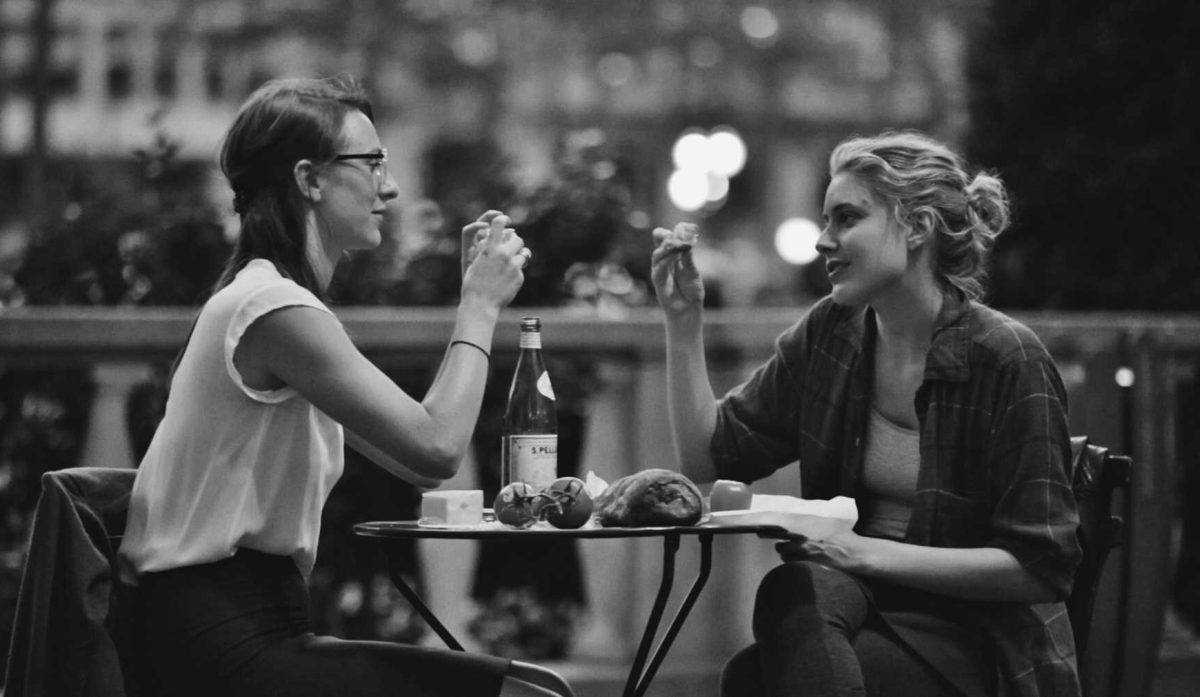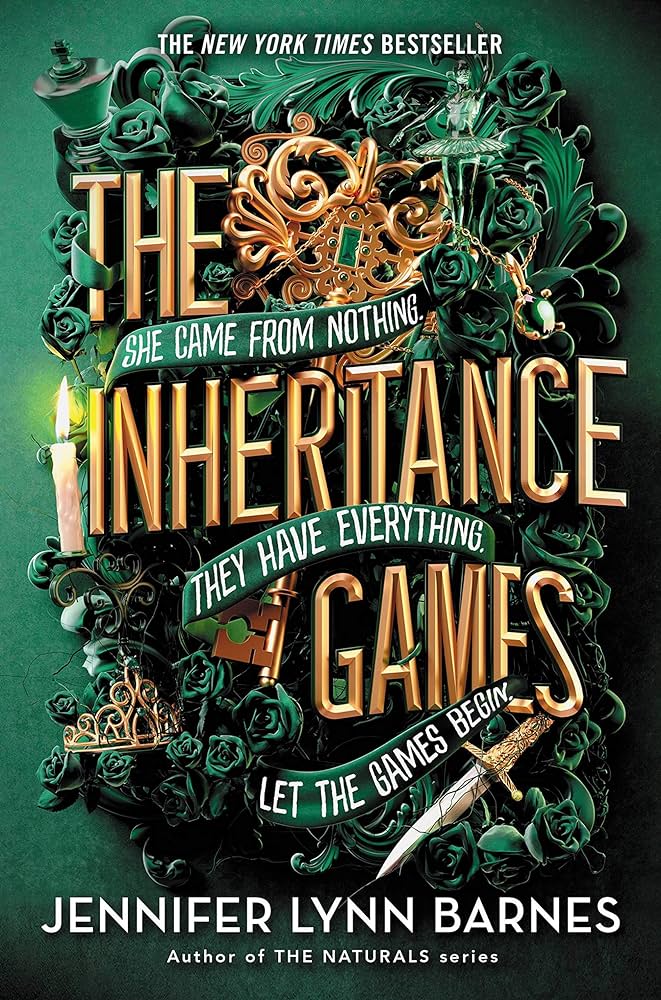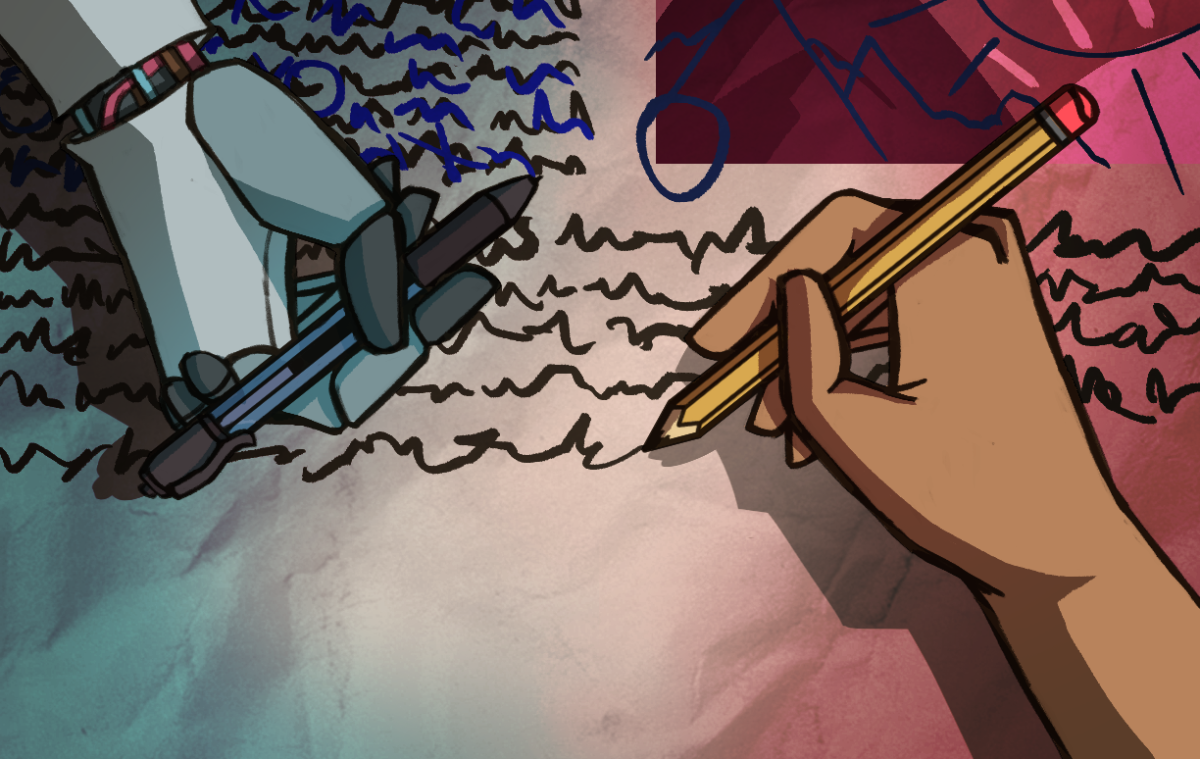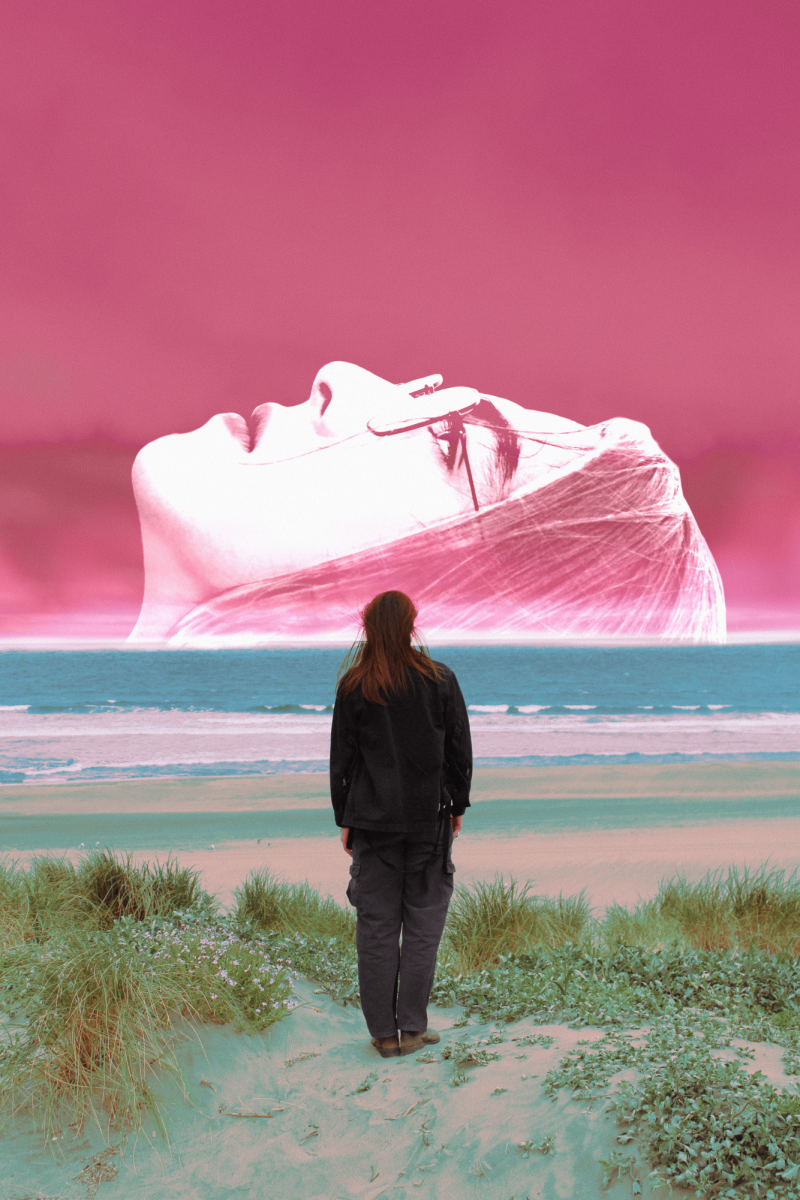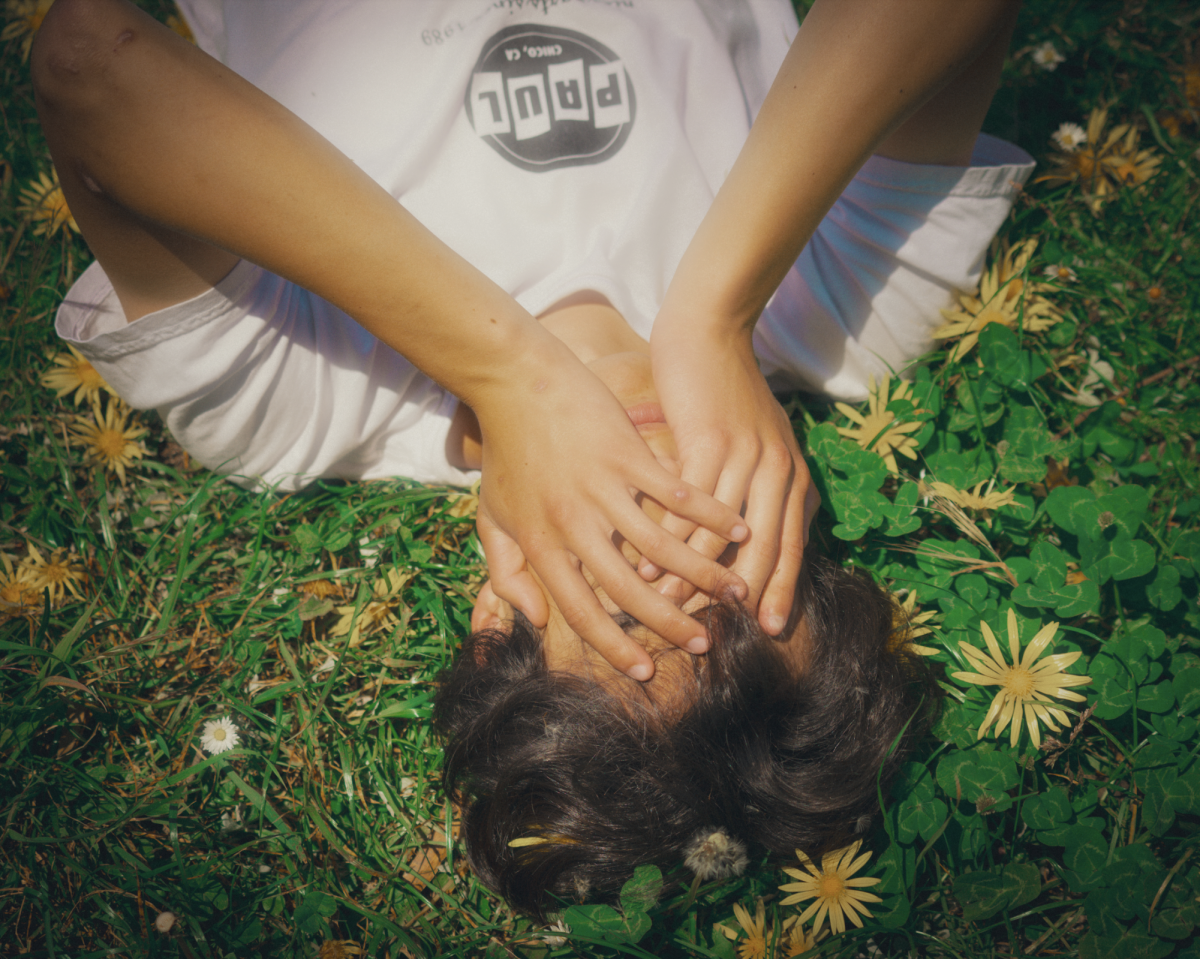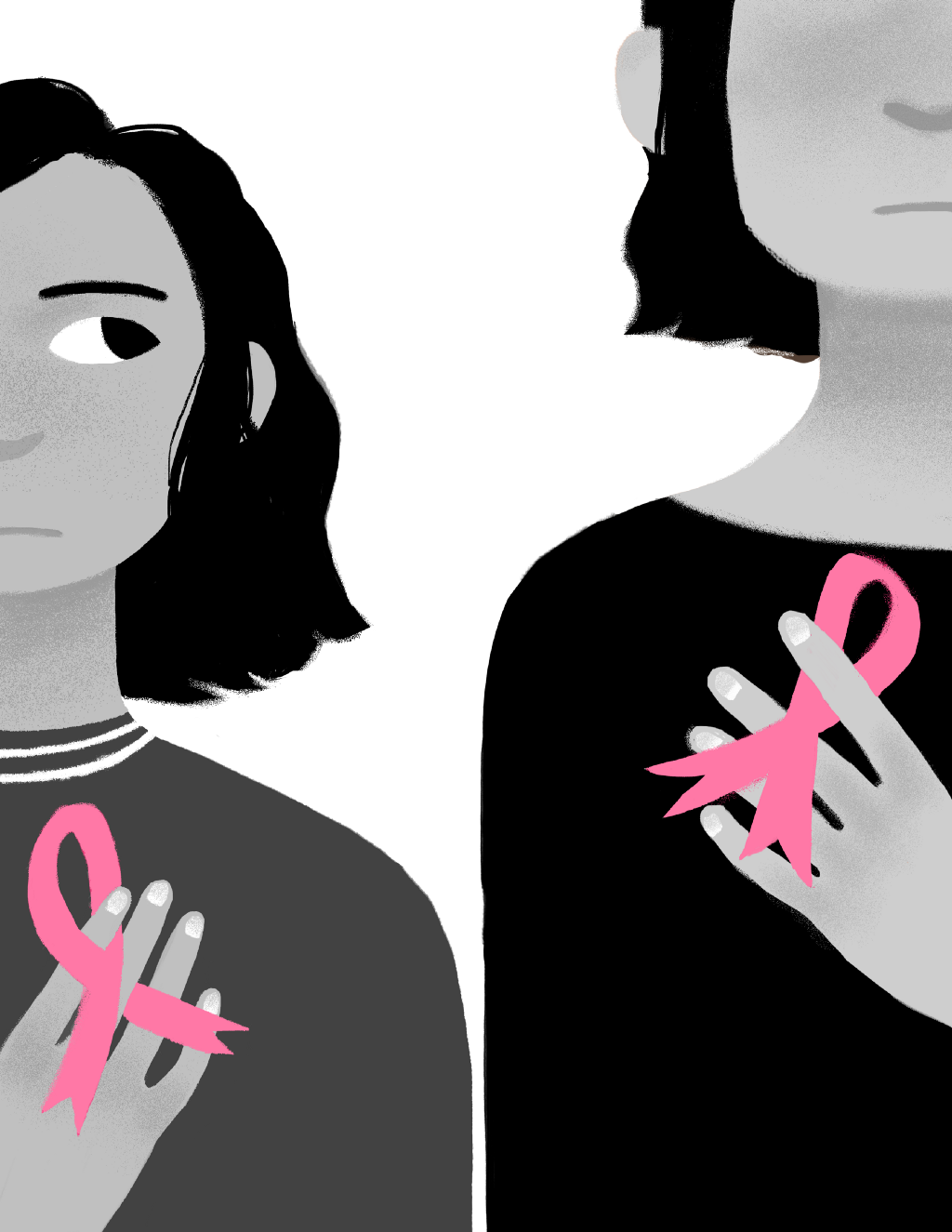
All throughout my life, my mother has been one of my best friends and a guiding light for me. She has inspired me to travel, look for adventures and appreciate new experiences. She is a teacher with a perfect balance of compassion and power. She has taught me to never be ashamed when I needed someone to talk to. And, she has always helped me sort my troubles out. She has inspired me to take care of myself, and treat my body the way it deserves to be treated.
A few months ago, I came home one night to find my parents sitting in the living room. They had distraught looks on their faces when I walked in and sat down. I knew what was going on from the way the air felt in the room, but I lied to myself about it. I couldn’t face the facts — I knew the results had come back from the test she had taken at the doctor’s. And I knew that they were positive.
My mom has breast cancer. It’s really hard to think about because I never thought it was possible. She had medical tests, scares from Internet searches and possible explanations for pains and aches, but the tests had always come up negative. My mom was healthy and any pains were just from aging — or at least that’s what we thought.

I couldn’t face the facts — I knew the results had come back from the test she had taken at the doctor’s. And I knew that they were positive.
I knew how I was supposed to feel about this news: I was supposed to be sad; duh. But I somehow felt nothing but relief at finally knowing what was wrong with my mother. She told my family she was suspicious of a tumor in her breast earlier in the week after noticing a lump. Since then, worries about my mother’s health hadn’t left the back of my mind. I went to my room and shoved my face into a pillow and pushed, trying to force something out of myself: maybe a sob, or a scream. All I got was a mouth full of fabric and a dry tongue. I went to bed that night in a state of numbness.
Within the next few weeks, a lot changed. None of my family knew what was really coming and how it would affect our family. As much as she looked “cancer” up on the Internet and borrowed big fat pink books about cancer, my mom didn’t really seem to be sure either. I wasn’t terrified. I didn’t even feel that bad. Physically, she seemed the same, and she still did a lot of the things she did normally. Yet a multitude of calls poured in from friends and family telling me if I ever needed anything, they were there for me, and that I should just fly over to them and visit. They would tell me, “It’s going to be tough but then it will be over.” People would tell my mother “You’re about to live through hell” and “You’re going to feel like after you get a cut and it’s really itchy,” referring to her skin after her mastectomy (when she would get the tumors removed from her breasts). They said, “Your mama is going to be okay.” At that point, I didn’t realize how long this cancer would be a part of our lives because I didn’t understand the severity of even one small tumor. I also didn’t realize that the cancer could be anywhere in her body and was virtually undetectable.

I appreciated all the new food in the fridge brought by nice moms and not having to worry about lunch for a while. But, I often felt like I didn’t have my mother there with me. She was somewhere else, even when she was right next to me. Her mind was always on cancer. She had cancer. She was getting surgery and possibly chemotherapy, and how could I be so selfish to try to talk about myself so much?
They said, “Your mama is going to be okay.”
For a while, it was weird to talk to her like life was normal. One day, when we were driving in the car up Monterey, my mom told me she was done feeling sorry for herself. She had a list of things that she wanted to do before her mastectomy, because she knew that she wouldn’t be able to do them while she was recovering. She wanted to go to Joshua Tree where we had good memories from past trips, see the open studios in Sebastopol where we enjoyed looking at pottery, and have a dance party with everyone. We also had a debate about the healing power of crystals, which she had developed interest in from talking with friends. I was skeptical.
Although we didn’t end up going on any trips to Joshua Tree, one thing that did end up happening was the dance party. Family friends kept approaching me, telling me they were here for me, and I realized how much support I had around me. I was so relieved to see how many people cared about the well being of my mother and my family. But, I still wondered how I could use it. It seemed strange to call people up and talk about something that felt so personal. Although the party was incredibly fun and all my mother probably hoped for, this was when I first forced myself to internalize what was going on. Before this, I understood that there were people around me who would do all they could to take care of my mother and me, but I didn’t understand the depth and the quantity of support we had. I had felt numb, like I had shut out any feelings of fear that could’ve come from this. I didn’t take it in when people offered their support.
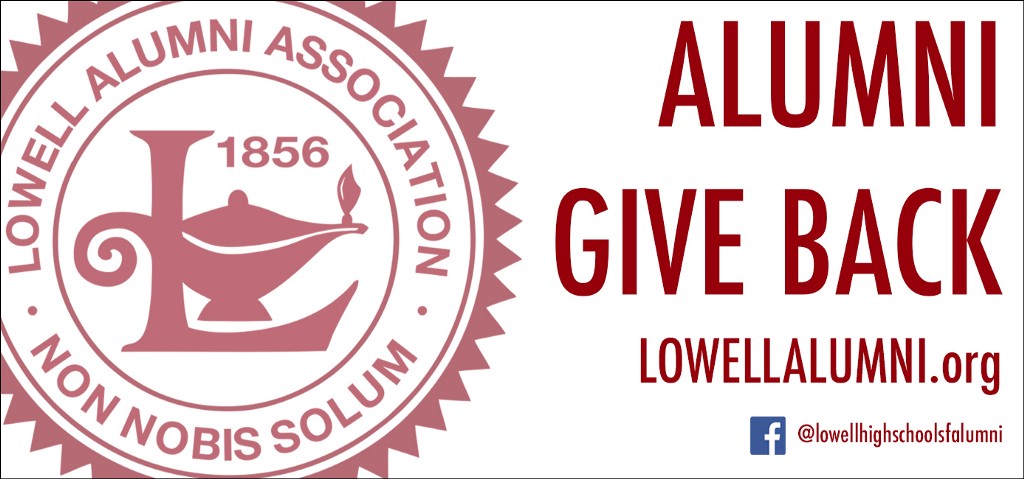
And I still do feel like this. I still don’t fully know where I stand on my mother’s cancer, even though I’ve had so much time to process and think about what is going on, I basically refuse to. It’s not easy to keep living life like it’s normal with cancer plaguing your home. Listening to my mother cry and my family fight as I try to continue to take on a Lowell-sized workload often leads to sleepless nights and my feelings pushed down like the espresso in a coffee machine. I know that when you pack it too hard, it explodes and the coffee turns out terrible. That’s what I’m afraid of, losing control of my emotions and not being able to continue living the way I do. And somehow, I’m also scared that I’ll never lose it, that I don’t even have any feelings to let take their toll, and I am emotionless and gray.
There were some good days and some bad days: but every day was a cancer day.
After the dance party, my family began to wait for the surgery. Every moment there was dread floating through the air — a mysterious, fearful entity hovering and waiting to punch us in the face. My frightened mom would break down and cry at any time and any place: in the Goodwill, on the beach, in the kitchen, in the car. I felt like my mother and this huge chunk of my life had been taken from me, and without my mom there, I was afraid I’d fall apart.
When the day came, it was terrifying to think of what was happening to her. In my mind she was unconscious, under some medical team cutting off parts of her body.
My grandmother flew out to take care of my mom and my family throughout the surgery and the weeks of recovery, promising to not leave until my mom was up and running, which seemed ironic to me. All her life, my grandmother had taken care of my mom, and even now she continued. It was strange to think about my mom’s mother and daughter taking care of her simultaneously. My dad, who was always soldiering forward, thought it was ridiculous when my grandmother spoon-fed her like a baby, but my mother loved it. I remember what it was like to visit her in the hospital after her surgery. She had flowers everywhere and was exhausted. Her eyes had dark purple bags and she could barely move. It was weird. But I also liked visiting her after the surgery because of the free Popsicles and Jell-O, and because it was better to see her at a time when she seemed carefree, probably because of the various drugs she was on. But I was also unprepared to see her in a state where she could barely walk and her left arm didn’t work at all.
But I finally had to let it seep in — my mother actually had cancer, and that meant uncertainty and pain was in the future for all of us in my family. There were some good days and some bad days, but every day was a cancer day. My mother, constantly drugged, sat in the house, watching TV and having friends over. She no longer worked, and I no longer heard her wonder aloud about what she should teach tomorrow. It was these little things that made it seem almost like the cancer had swallowed her up. I felt somehow tied to home. It was a part of my job now to take care of her. There were often times when I wished I could just stay at someone else’s house, a friend maybe, and not have to think about this. I definitely underestimated how difficult it would be during her recovery period. My mother had always been so strong physically and mentally, and I wasn’t strong enough to be there for her.
I know that there’s a lot more stuff coming at us from behind corners. MRI’s and scans of all kinds seem to contradict things they had previously indicated. This made us constantly wonder who and what information to trust. That’s what I think is so frightening: not knowing what will happen in the future and not really knowing what’s happening now.
As of right now, things are moving slowly. My mom is recovering and spending hours upon hours watching Spanish television. I come home, put my bag down, sit, and watch. Not unlike how it was before, but still definitely not the same. When my mom stands up to use the bathroom, everyone gets up to help her. People come over and chat with her about her cancer and their own experiences with it. It’s shocking just how common it is. Sometimes I can’t take it so I run upstairs to my sisters room, put on headphones and read a book.
Her cancer will be a part of our lives for ever, but hopefully she won’t have cancer inside her body for much longer.
During that conversation in the car, my mom had the idea for this column. She told me she wanted me to help create awareness, because all her life she was a healthy person — in middle school she did gymnastics every day, in high school she ran cross country, did yoga and worked out every week. She thought she was already on top of her health because she was tested. But she let a year go by between her previous test and this one, which was too long, and there was something important she didn’t know: her dense breasts had caused it to be incredibly difficult to detect the cancer that was growing slowly. The average woman over 40 should have a mammogram at least once a year, according to the National Breast Cancer Foundation, but if you know you are at risk, then you should be tested more frequently, which my mother did.
Recently, things got better medically, but not necessarily with our outlook on life. Our family problems, like figuring out how to live without my mother doing dishes or driving resulting from her cancer, persist, causing tension in my house.
At our age, in high school, we are not at high risk for getting cancer, according to Breastcancer.org. Still, it’s very important that you are aware of where you stand in relation to breast cancer. I have an increased risk because my mother has a mutation in her genes that causes cancer. When I’m old enough, I will get tested to see if I also do. According to the American Cancer Society, 10–15% of cancer is hereditary. Ask if you have a family history of cancer, if anyone in your family has, keep in mind that this could put you at an increased risk.
According to the American Cancer Society, 10–15% of cancer is hereditary.
If you don’t know how to conduct a self-examination, learn. You can look it up on the internet, and look for sites like Nationalbreastcancer.org or Breastcancer.org. These self-examinations can’t always detect a tumor, but knowing how to do them is important, incredibly so. After you turn twenty five, you should get clinical examinations once a year. I’ve learned that you need to know how to take care of yourself, and the only thing you can do for yourself to catch cancer at an early stage is to be vigilant. The second you let it slip your mind or decide it is not important, you are putting yourself at risk. 12.4% of women will develop breast cancer of some form throughout their life according to the National Cancer Institute.
And if you are going through something similar, it’s super easy to feel isolated and like you have no one to tell your feelings to. I often feel like I’m far apart from all my friends and colleagues, but so many people might be going through something similar, even at Lowell. But I’ve also found that this experience has made me more inclined to connect with other people whose parents or family members have cancer. I appreciate that these people are or have previously been through something similar to what I am experiencing now as a result of my mother’s cancer. For example, a girl I knew went through it all in elementary school. She has grown up now and seems to be strong and happy.
Even though my mom’s cancer is still very much a part of my life, I feel stronger after a tough day. Her cancer will be a part of our lives for ever, but hopefully she won’t have cancer inside her body for much longer. I will try not to hold my breath until it’s over, but instead take in all the lessons I’ve learned from watching her go through this. And I’ll always remember the love and support I have from the people in my life when the day comes that she is cancer- free.


